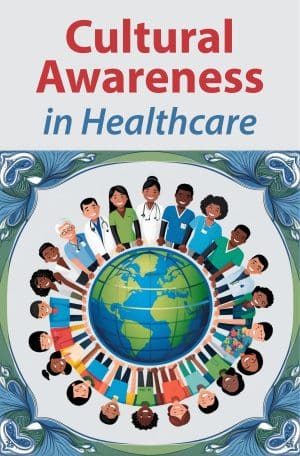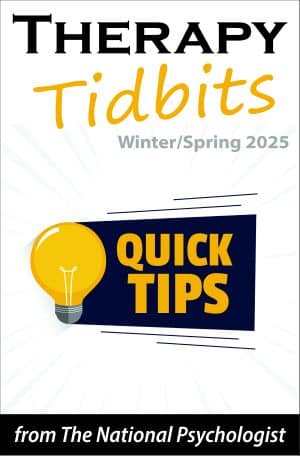- ADHD
- Adults
- Alternative Medicine
- Alzheimers & Aging
- Animal-Assisted Therapy
- Autism
- Behavior Therapy
- Child & Adolescent
- Closeout
- Communication
- Couples-Family-Parenting
- Cultural Diversity
- Depression & Anxiety
- Domestic Violence
- Ethics & Risk Management
- Gender Identity
- HIV-AIDS
- Human Trafficking
- Laws & Rules
- Medical Errors
- Mindfulness & Yoga
- Miscellaneous
- National Psychologist
- Nutrition & Fitness
- Pain Management
- Psychotherapy
- Sexuality
- Substance Abuse
- Suicide
- Supervision
- Trauma & PTSD
Effects of Digital Media on Adolescents
Janet Harrison, PhD, CCC-SLP; Leo Christie, PhD, LMFT
$39.00
 Intermediate
Intermediate
 Online
Online
Course Abstract
Effects of Digital Media on Adolescents is a 3-hour online continuing education (CE) course that explores how the digital world is affecting teens of successive generations.
It is becoming clear that the effects of digital media are affecting each successive generation of teenagers in ways that are only now beginning to come into view. iGen’ers’ communication and behaviors differ from those that characterized the Baby Boomers, Millennials, and the XGen’ers. We now know that the adolescent brain is still developing, and some digital behaviors do affect ongoing brain growth. Neuroplasticity can be affected by repetitive or obsessive behaviors, and the digital world offers risks for those adolescents who may engage in excessive video gaming. This course is for professionals, teachers, and parents who are seeking any available information that will help them to monitor their adolescents’ online behavior, teach teens how to remain safe while online, and model appropriate digital behaviors. Included are strategies that can help contribute to a balance between the digital world and the real-time, face-to-face lives of older children and adolescents.
Course # 31-18 | 2019 | 52 pages | 20 posttest questions
Learning Objectives
- Differentiate among the characteristics of the iGen, Millennial, GenX, and Baby Boomer generations
- List aspects of reading and writing that are significantly affected by Computer-Mediated Communication (CMC)
- Identify relationships between social media use and adolescent behaviors and feelings of well-being
- List concerns about teens’ use of digital technology in terms of neural plasticity in the adolescent brain
- Describe the potential benefits and the known risks of teens’ use of digital media
- Identify protective guidelines and curricula for preparing adolescents for the digital world
Course Directions
This online course provides instant access to the course materials (PDF download) and CE test. The course is text-based (reading) and the CE test is open-book (you can print the test to mark your answers on it while reading the course document).
Successful completion of this course involves passing an online test (80% required, 3 chances to take) and we ask that you also complete a brief course evaluation.
About the Author(s)
Janet Harrison, PhD, CCC-SLP : Find out More
Janet Harrison, PhD, CCC-SLP, has been an Associate Professor and Director of Clinical Education in Speech-Language Pathology at Purdue University, an Associate Professor at Marshall University and an Assistant Professor at Valdosta State University. Prior to her university positions she was Administrative Director of Clinical Services, Devereux Hospital & Neurobehavioral Institute of Texas, and developed a clinical program as the director of the Department of Speech-Language Pathology, Devereux Hospital & Children’s Center of Florida. Dr. Harrison has worked extensively in both medical and educational settings for intervention with children and adolescents who have language disorders as well as emotional/behavioral disorders.
Disclosure
:
Financial: Dr. Harrison received author compensation from Professional Development Resources.
Nonfinancial: No relevant nonfinancial relationships exist.
Leo Christie, PhD, LMFT : Find out More
Leo Christie, PhD, LMFT, is a Florida-licensed Marriage and Family Therapist with a doctorate in Marriage and Family Therapy from Florida State University. Past President of the Florida Council on Family Relations, Dr. Christie has more than 20 years’ experience in private practice with a specialty in child behavior disorders and as an instructor for over 500 live continuing education seminars for healthcare professionals. He is the founder of Professional Development Resources; a nonprofit corporation whose mission is to deliver continuing education credit courses to healthcare professionals throughout the United States.
Disclosure
Financial: Receives a salary from Professional Development Resources, Inc.
Nonfinancial: No relevant nonfinancial relationships exist.
CE Information
Counseling
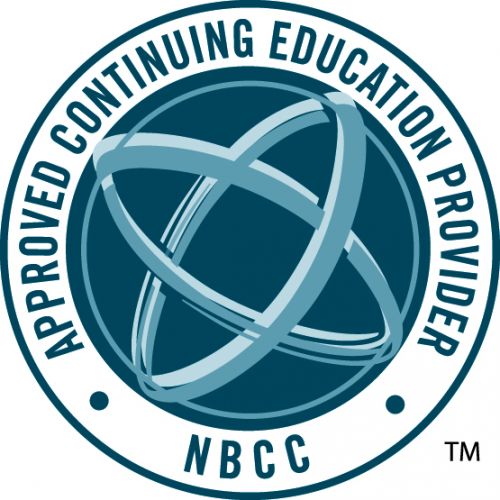
Professional Development Resources (PDR) has been approved by the National Board for Certified Counselors (NBCC) as an Approved Continuing Education Provider, ACEP No. 5590. Programs that do not qualify for NBCC credit are clearly identified. PDR is solely responsible for all aspects of the programs.
Professional Development Resources is CE Broker compliant (#50-1635 - all courses are reported within two business days of completion). Professional Development Resources, Inc. is recognized by the New York State Education Department’s State Board for Mental Health Practitioners as an approved provider of continuing education for licensed mental health counselors (#MHC-0135 - Note: New York counselors will receive 3 continuing education credits for completing this self-study course).
Marriage and Family Therapy
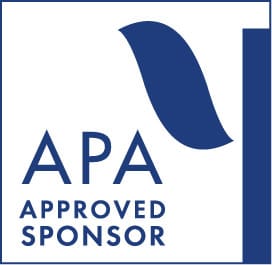
Professional Development Resources is approved by the American Psychological Association (APA) to sponsor continuing education for psychologists. Professional Development Resources maintains responsibility for this program and its content. Professional Development Resources is also approved by the National Board of Certified Counselors (NBCC ACEP #5590); the Association of Social Work Boards (ASWB #1046, ACE Program); the New York State Education Department's State Board for Mental Health Practitioners as an approved provider of continuing education for licensed marriage and family therapists (#MFT-0100 - Note: New York MFTs will receive 3 continuing education credit(s) for completing this self-study course); the Texas Board of Examiners of Marriage and Family Therapists (#114); and is CE Broker compliant (#50-1635 - all courses are reported within two business days of completion).
Nutrition and Dietetics
Professional Development Resources is a CPE Accredited Provider with the Commission on Dietetic Registration (CDR #PR001). CPE accreditation does not constitute endorsement by CDR of provider programs or materials. Feedback for this activity can be sent directly to CDR. Professional Development Resources is also a provider with the Florida Council of Dietetics and Nutrition (#50-1635) and is CE Broker compliant (#50-1635 - all courses are reported within two business days of completion).
Download CDR's Critical Thinking Tool - CDR credentialed practitioners must complete and save this form and the certificate of completion should they ever be audited. Failure to include both certificate and completed tool will result in a failed audit and loss of CPE credit. Feedback about the quality of the activity can be sent directly to CDR: QualityCPE@eatright.org
Occupational Therapy

Professional Development Resources is an AOTA Approved Provider of professional development. Course provider ID# 3159. This distance learning-independent course is offered at 0.3 CEUs, intermediate level, OT Service Delivery]. The assignment of AOTA CEUs does not imply endorsement of specific course content, products, or clinical procedures by AOTA.
Professional Development Resources is CE Broker compliant (#50-1635 - all courses are reported within two business days of completion).
Psychology

Professional Development Resources is approved by the American Psychological Association (APA) to sponsor continuing education for psychologists. Professional Development Resources maintains responsibility for this program and its content.
Professional Development Resources is CE Broker compliant (#50-1635 - all courses are reported within two business days of completion). Professional Development Resources, Inc. is recognized by the New York State Education Department’s State Board for Psychology as an approved provider of continuing education for licensed psychologists (#PSY-0145).
School Psychology

Professional Development Resources is approved by the American Psychological Association (APA) to sponsor continuing education for psychologists. Professional Development Resources maintains responsibility for this program and its content.
Professional Development Resources is CE Broker compliant (#50-1635 - all courses are reported within two business days of completion). Professional Development Resources, Inc. is recognized by the New York State Education Department’s State Board for Psychology as an approved provider of continuing education for licensed psychologists (#PSY-0145).
Social Work
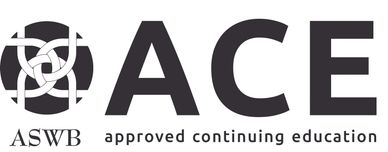
Professional Development Resources, #1046, is approved as an ACE provider to offer social work continuing education by the Association of Social Work Boards (ASWB) Approved Continuing Education (ACE) program. Regulatory boards are the final authority on courses accepted for continuing education credit. ACE provider approval period: 6/12/2022 - 6/12/2025. Social workers completing this course receive 3 clinical continuing education credits.
Professional Development Resources is CE Broker compliant (#50-1635 - all courses are reported within two business days of completion). Professional Development Resources, Inc. is recognized by the New York State Education Department's State Board for Social Work as an approved provider of continuing education for licensed social workers (#SW-0664 - Note: New York social workers will receive 3 continuing education credit(s) for completing this self-study course). Professional Development Resources is also approved by the Texas State Board of Social Worker Examiners (#5678).
Teaching
Professional Development Resources is approved by the American Psychological Association (APA) to sponsor continuing education for psychologists. Professional Development Resources maintains responsibility for all programs and content. Professional Development Resources is also approved by the National Board of Certified Counselors (NBCC ACEP #5590); the Association of Social Work Boards (ASWB Provider #1046, ACE Program); the Continuing Education Board of the American Speech-Language-Hearing Association (ASHA Provider #AAUM); the American Occupational Therapy Association (AOTA Provider #3159); the Commission on Dietetic Registration (CDR Prior Approval Program); the New York State Education Department’s State Board for Psychology as an approved provider of continuing education for licensed psychologists (#PSY-0145), State Board for Mental Health Practitioners as an approved provider of continuing education for licensed mental health counselors (#MHC-0135) and marriage and family therapists (#MFT-0100), and the State Board for Social Workers as an approved provider of continuing education for licensed social workers (#SW-0664); the Texas Board of Examiners of Marriage and Family Therapists (#114) and State Board of Social Worker Examiners (#5678); and is CE Broker compliant (#50-1635 - all courses are reported within two business days of completion).



